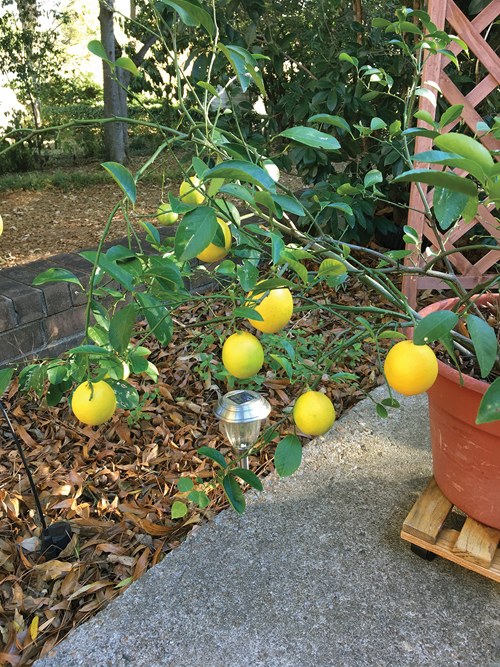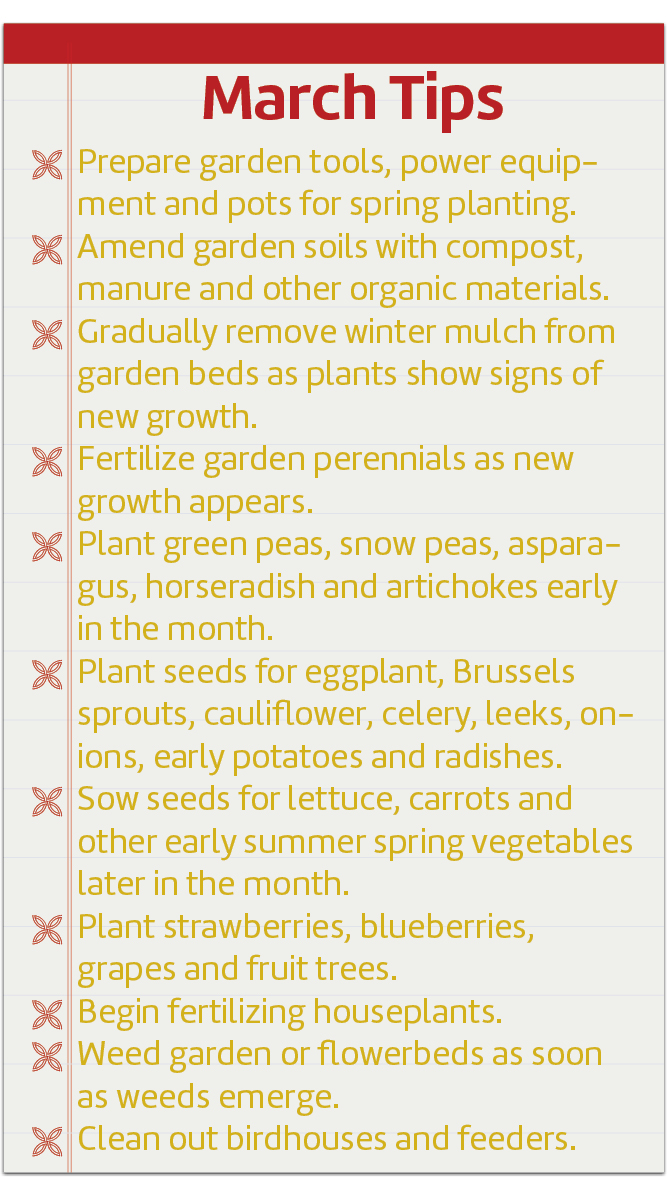
Tips for home citrus production
BY KATIE JACKSON
What could be better than starting the day with a glass of fresh-squeezed orange juice? Squeezing that juice from an orange harvested right outside your door, of course, which is more possible than you might imagine.
Oranges, grapefruits, lemons, limes and other citrus fruits are tropical (to semi-tropical) plants that are primarily produced for the commercial U.S. market in frost-free regions of Florida, California, Arizona and Texas. But Alabama actually has a long and storied history of citrus production along our Gulf Coast, particularly with satsuma mandarin oranges, the production of which has been a waxing and waning there for more than a century.
In the past, that industry waned during cycles of extremely cold winters that severely damaged or killed citrus trees and crops, which in turn affected the ability of area growers to sustain markets for their fruit. Over the last few decades, however, research on cold-protection practices and the development of freeze-resistant cultivars have revitalized satsuma production in the state and even helped expand it as far north as central Alabama.
One of the more northerly Alabama citrus producers is John Neighbors, who produces a wide variety of produce on his farm located on the Coosa-Tallapoosa county line near Alexander City, including (but not limited to) satsumas, Meyer lemons and limes.
One key to Neighbor’s success has been his use of high tunnels (also called hoop houses), which are tall greenhouse-like structures typically comprised of metal or plastic pipe frames covered in plastic sheeting that can be removed or rolled up when warm weather arrives.
Though high tunnels are a relatively affordable way to provide cover and warmth to plants during cold weather, they may not be a viable option for home gardeners. Luckily, there are ways to grow citrus on a small scale in almost any part of Alabama by choosing freeze-tolerant cultivars and providing them with the proper growing conditions. If you’re interested in growing some liquid sunshine, here are some options.
For those living in central Alabama and south, citrus trees can be planted in the ground (and now is a great time to plant them, by the way). They just need a spot with full sun, well-drained soil and some protection from winter winds and freezing temperatures, such as a site near the south side of a house or other structure (though not too close to sewer and water lines or patios and sidewalks, where citrus trees’ extensive root systems can cause trouble).
 For those in more northerly regions of the state or gardeners who don’t have an ideal site for in-ground trees, many citrus species do beautifully when grown in containers. These potted citrus trees look fabulous on a patio or in a sunny spot in the yard during the warm seasons and can be brought inside during the winter. Just make sure the container is large enough to accommodate root growth, is equipped with drain holes and is filled with a high-quality, well-draining soil media.
For those in more northerly regions of the state or gardeners who don’t have an ideal site for in-ground trees, many citrus species do beautifully when grown in containers. These potted citrus trees look fabulous on a patio or in a sunny spot in the yard during the warm seasons and can be brought inside during the winter. Just make sure the container is large enough to accommodate root growth, is equipped with drain holes and is filled with a high-quality, well-draining soil media.
Home garden citrus trees require little maintenance — proper watering and fertilization and attention to pest or disease threats are the biggest concerns — so they can be easy and attractive additions to the landscape. But it pays to explore all the ins and outs.
Ask for advice from local gardeners who have successfully grown citrus, or check with your local Alabama Cooperative Extension System office or local plant centers or nurseries for help. You can also find information online, including one helpful Extension publication, Citrus for Southern and Coastal Alabama, which lists suitable varieties for Alabama and offers detailed advice on planting and caring for citrus, advice that can be helpful even if you live in farther north in the state.
Once you’ve got the details in hand, it may not be long before you can have some liquid sunshine in hand!




